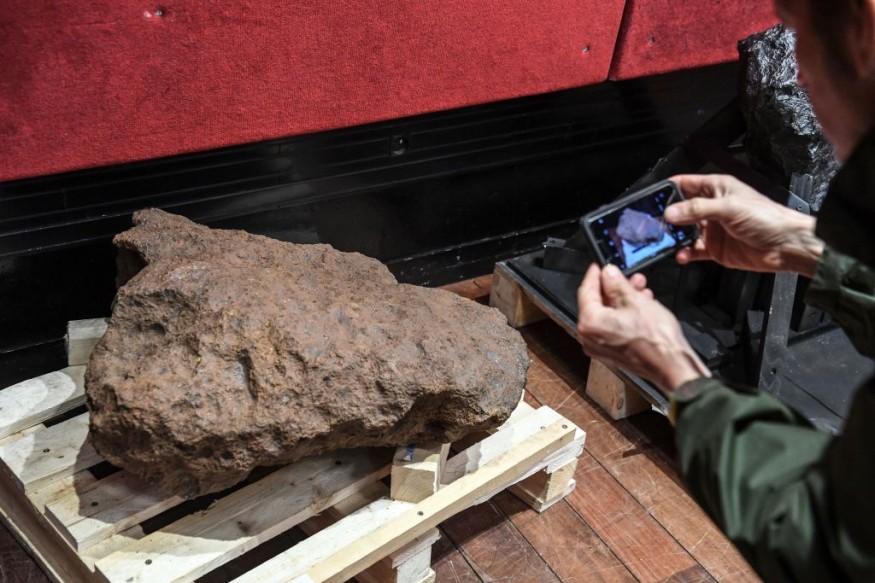
On a Michigan farm, a peculiar rock that was being utilized as a doorstop turned out to be a priceless meteorite worth $75,000 in total.
Meteorite Doorstop
Experts didn't become aware of one of the biggest meteorites ever found in Michigan until more than 80 years after it was found.
The space rock lived a simple existence as a 22-pound doorstop at a nearby farm for many years before being discovered by scientists.
Make sure this one is on your calendar. Dr. Catherine Corrigan from the Smithsonian National Museum of Natural History will be at CMU to share her expertise about the Edmore Meteorite found just a stone's throw away from campus. pic.twitter.com/KRmOMjPF1F
— CSE at CMU (@cmichSE) February 21, 2019
During her research in 2018, Mona Sirbescu, a Central Michigan University (CMU) geologist, said the specimen was something extraordinary and that it was the most valuable specimen she had ever held, both financially and scientifically.
Sirbescu was requested to look at a rock that Grand Rapids, Michigan resident David Mazurek had been holding onto for 30 years in case it was a meteorite.
Throughout Sirbescu's career, she had frequently asked for this, but typically without any noteworthy results; that is, until this one.
Edmore Meteorite
The item, also known as the Edmore meteorite, is a sizable iron-nickel meteorite with nickel making up around 12% of its composition.
It's a whole other tale of how Mazurek got his hands on the meteorite.
Sirbescu claims that during a tour of the farm Mazurek purchased in 1988 near Edmore, Michigan, the previous owner pointed out a sizable, peculiar-looking rock that was being used to hold open a shed door.
Mazurek inquired about the rock and was informed by the departing owner that it was truly a meteorite.
The man continued by saying that he and his father had witnessed the meteorite crash onto their property in the 1930s, and it had created a tremendous amount of noise when it did.
The couple discovered the crater created by the object, which they claimed was still warm, the following morning, and they removed the meteorite from the newly formed trench.
Doorstop and Show & Tell Piece
The most absurd part? The man informed Mazurek that the meteorite now belonged to him because it was a part of the land.
Thus, for the next 30 years, Mazurek maintained the space rock and used it as a doorstop, except the few times his children brought it to school for show and tell.
He eventually became aware that individuals were making money by discovering and offering little meteorite fragments for sale, so he decided to get his enormous rock assessed.
When he finally did, Mazurek must have been overjoyed because meteorites can be very expensive due to their scarcity and scientific worth.
According to Sirbescu, at this point, meteorites may be offered for sale and displayed in a museum or sold to dealers and collectors trying to make a profit.
Mazurek eventually sold his meteorite to the Abrams Planetarium at Michigan State University for $75,000, pledging 10% of the proceeds to CMU's earth and atmospheric sciences department, where Sirbescu confirmed the rock's real identification.
Related Article : Massive Meteor Crater Beneath Deniliquin Australia at 520km Exceeds World's Largest Vredefort
© 2025 NatureWorldNews.com All rights reserved. Do not reproduce without permission.





